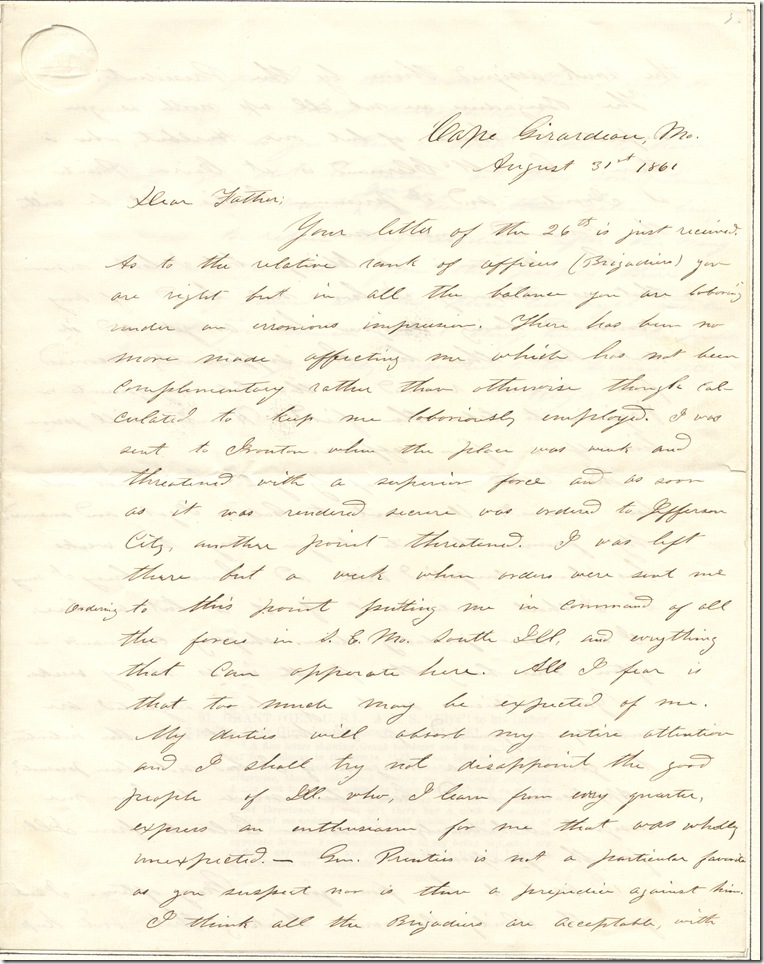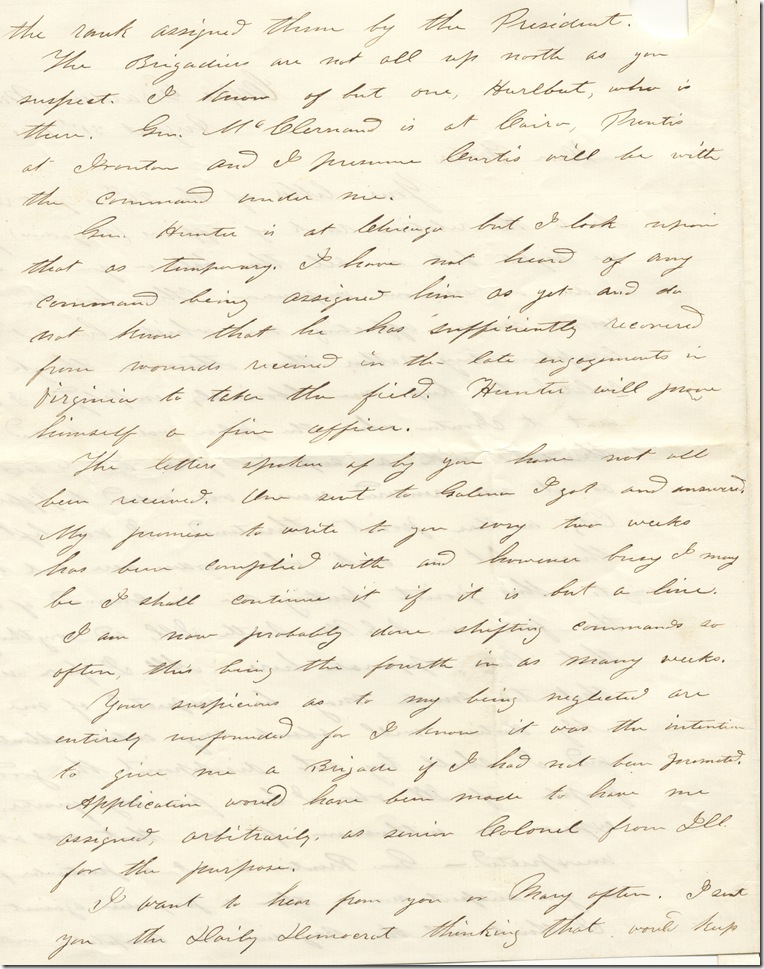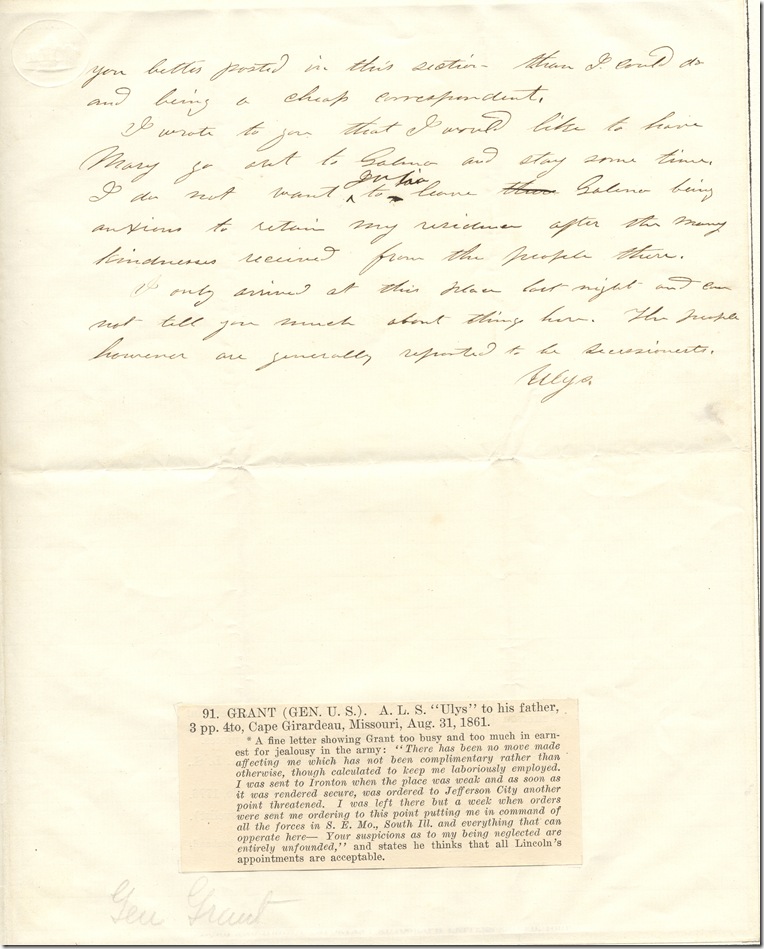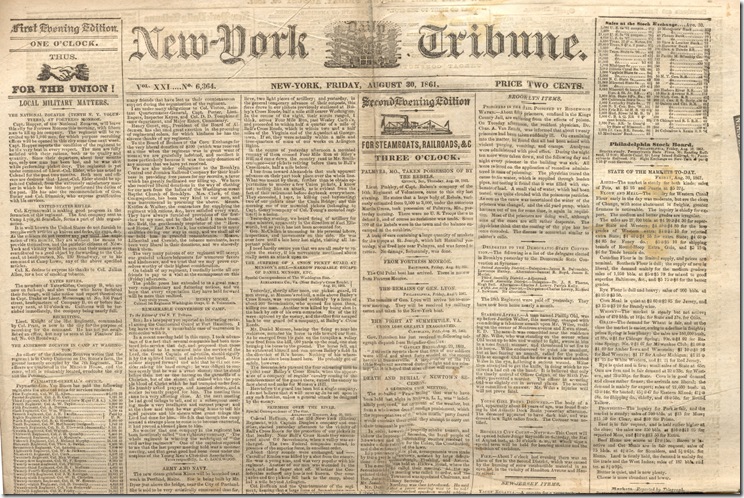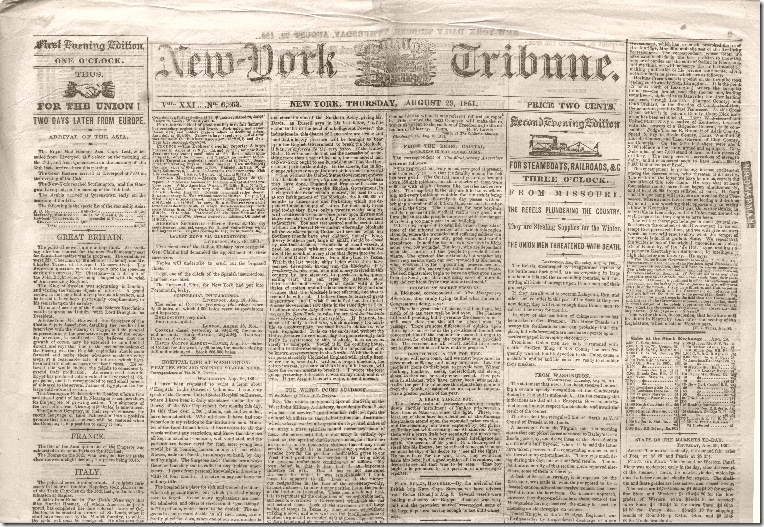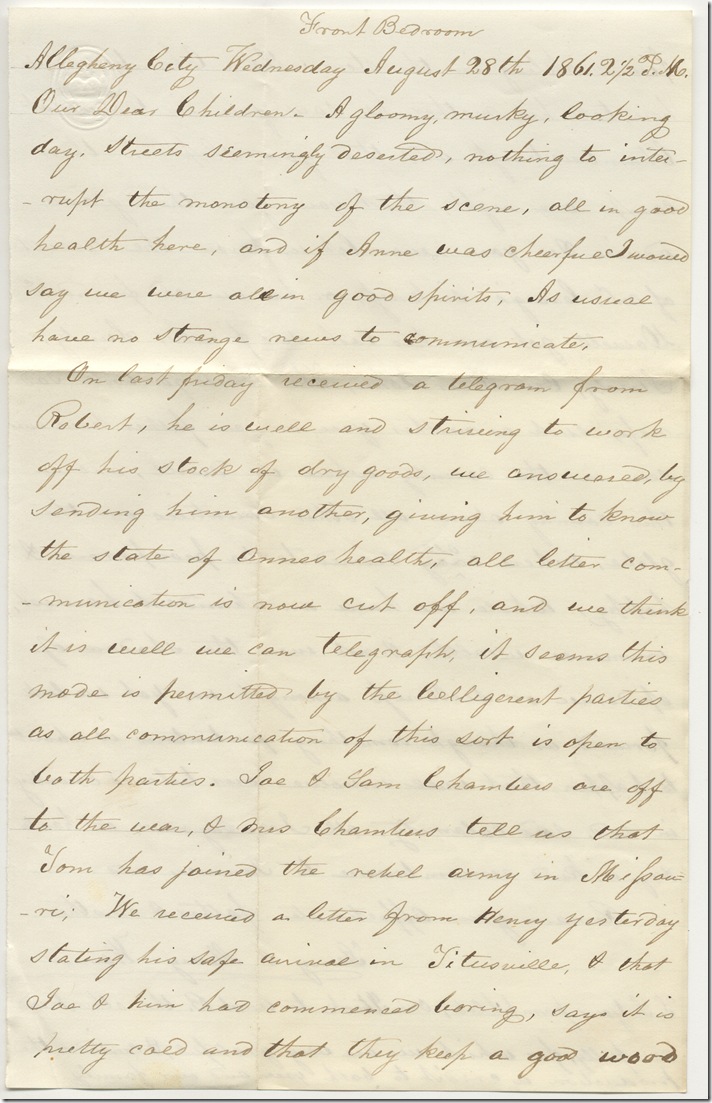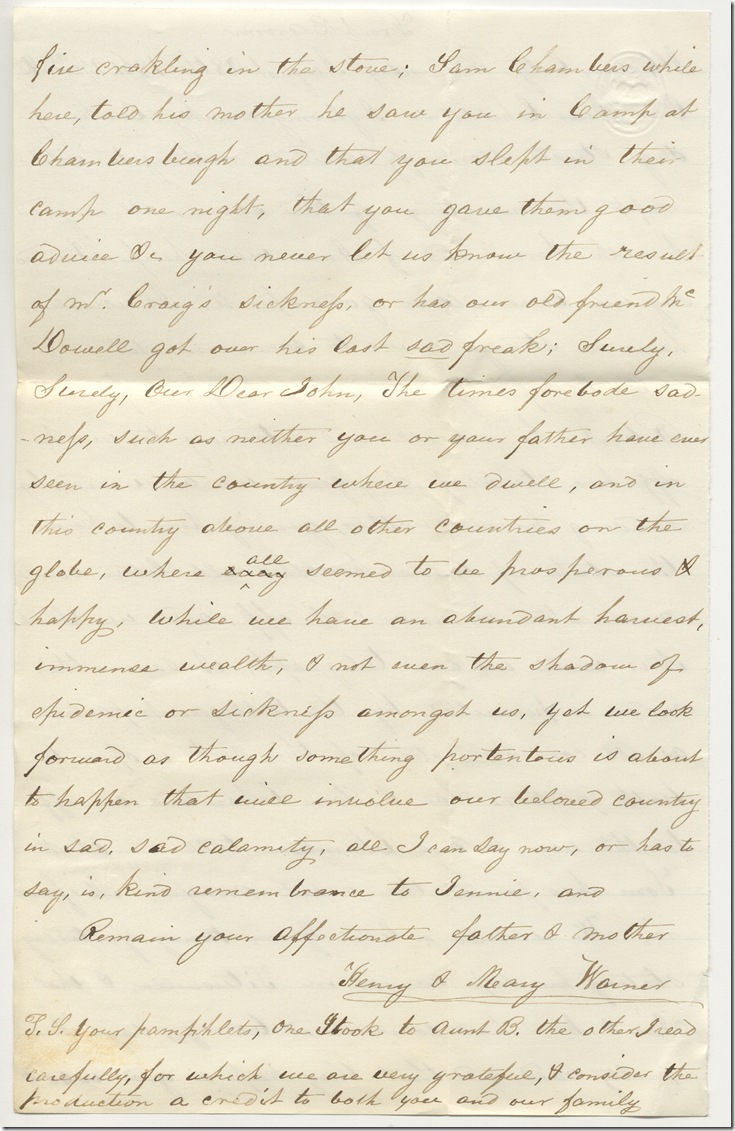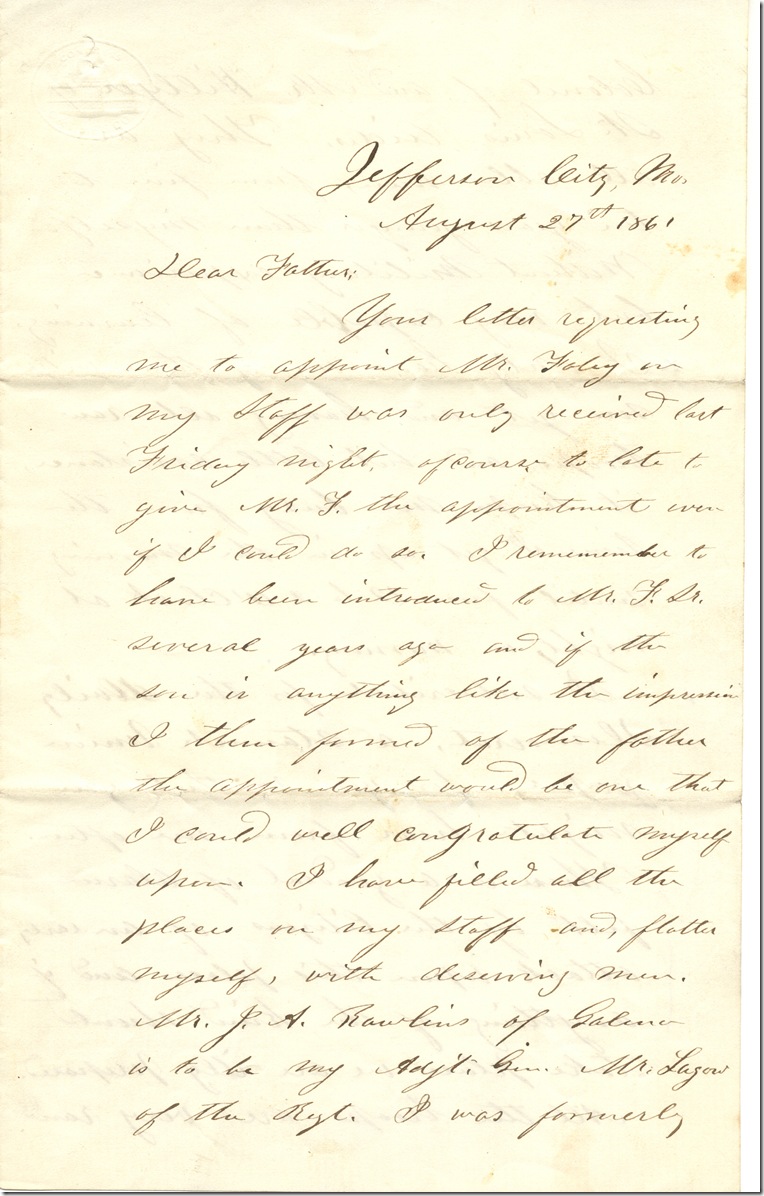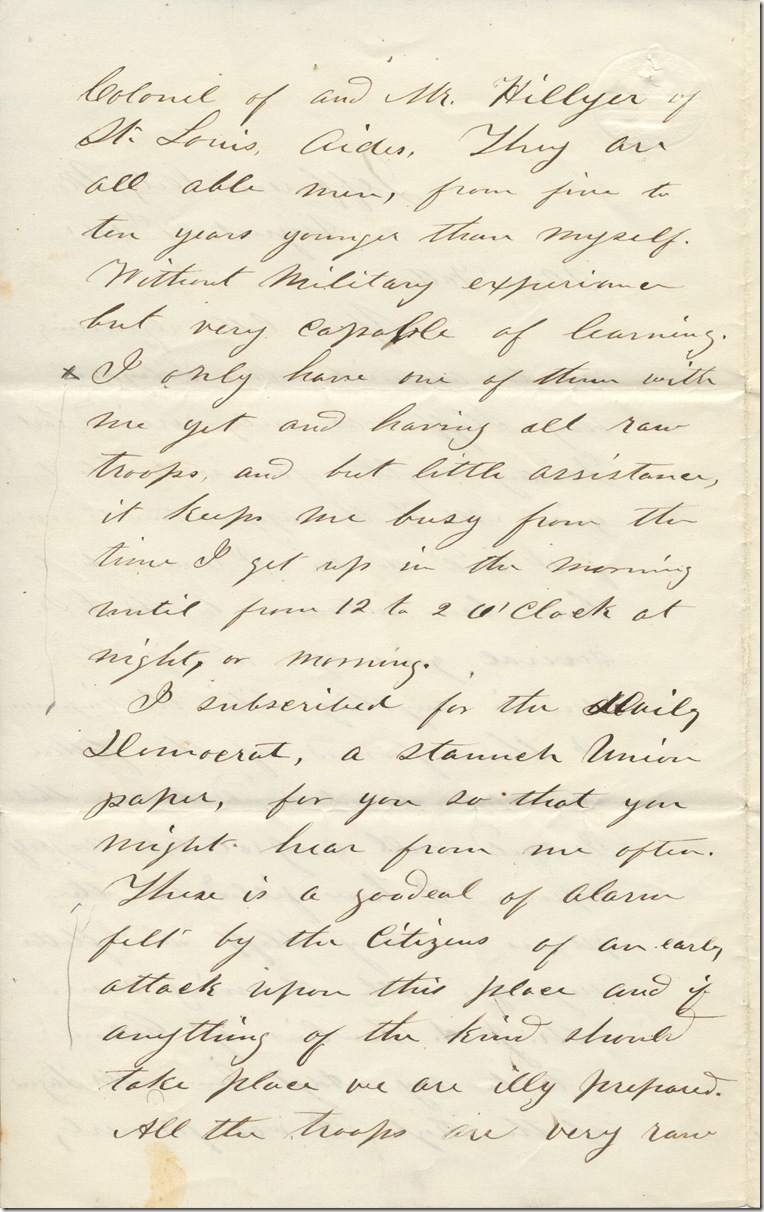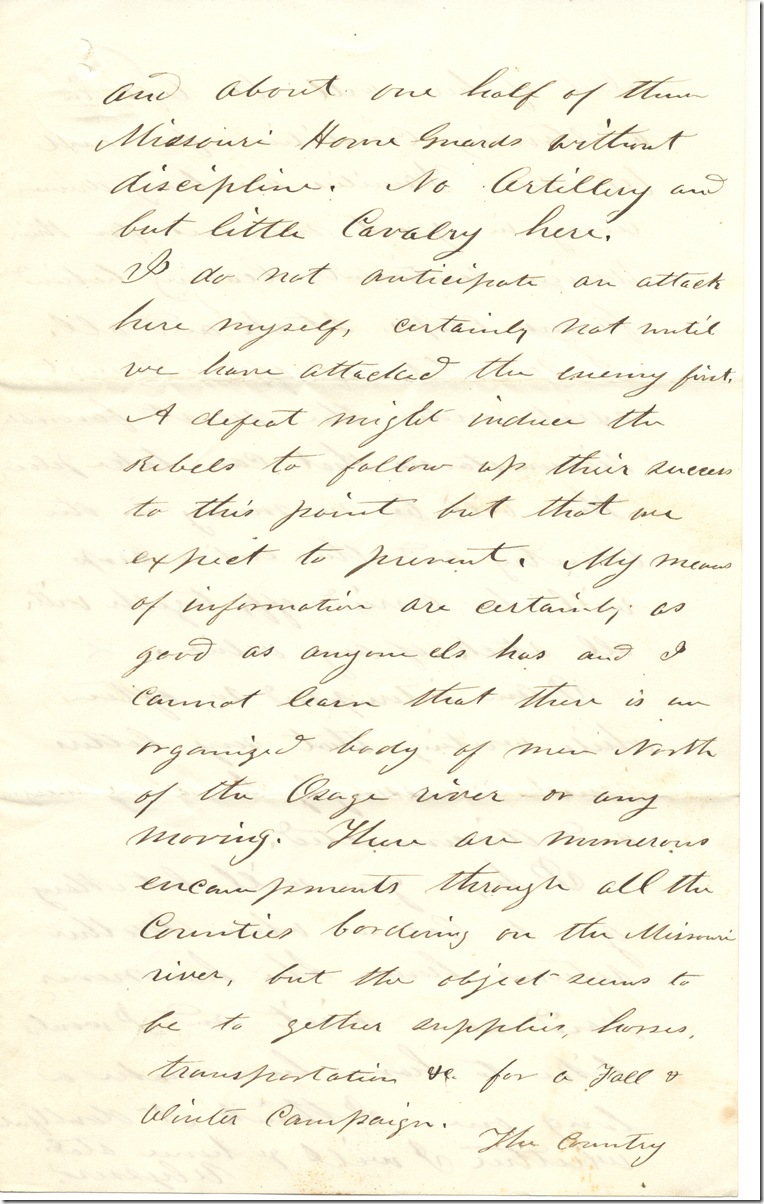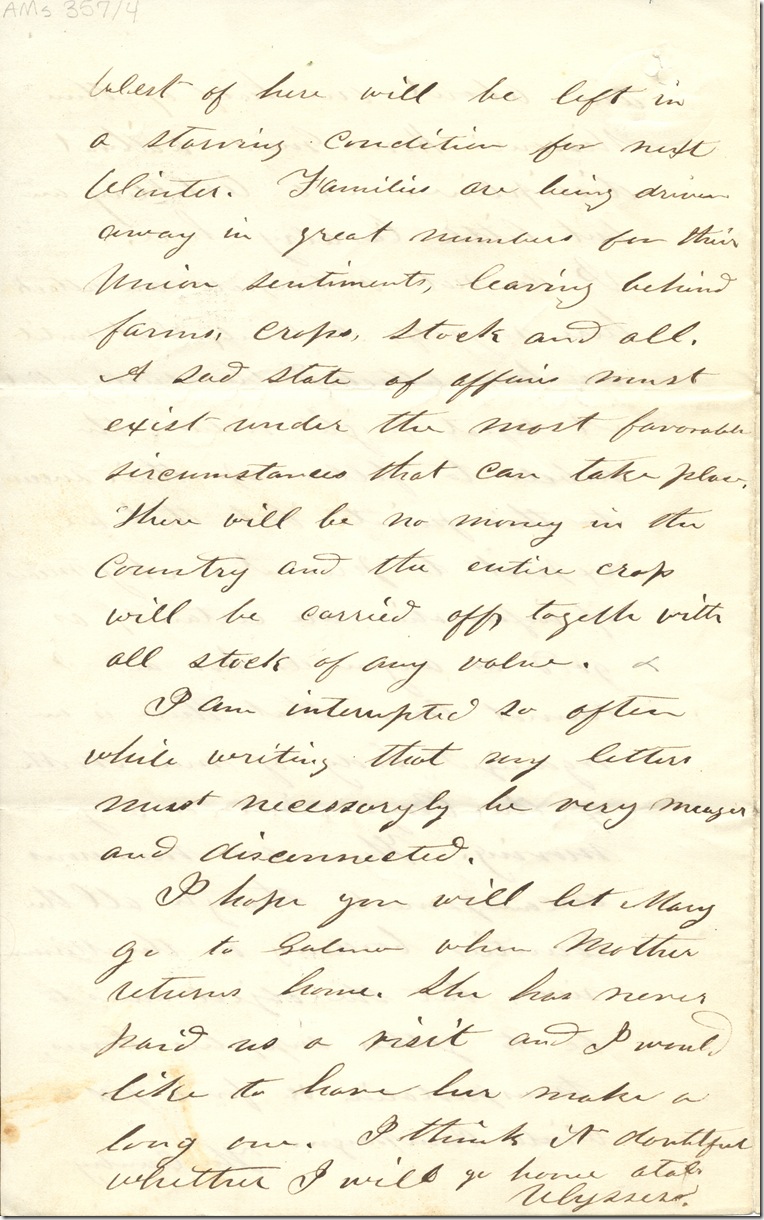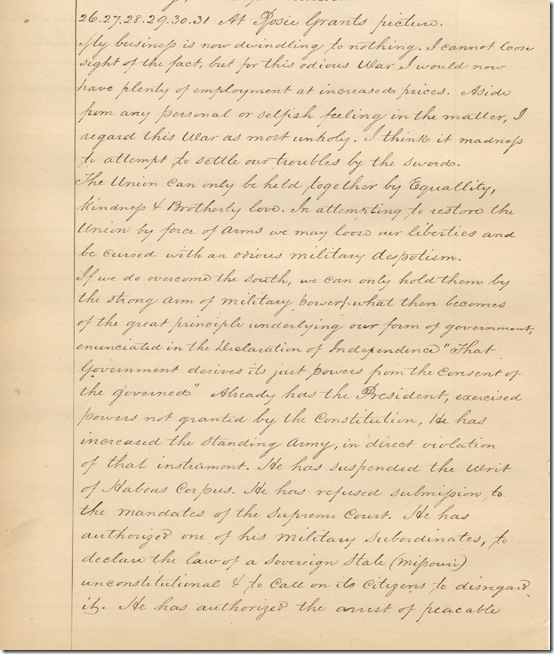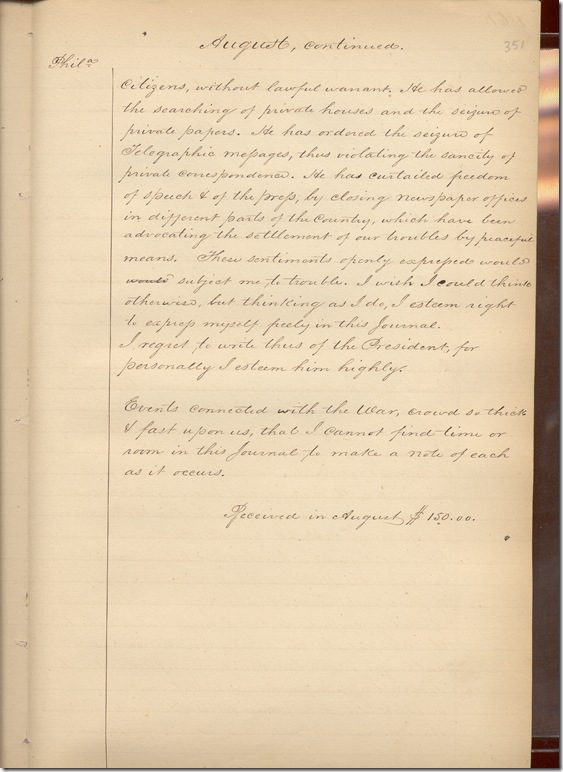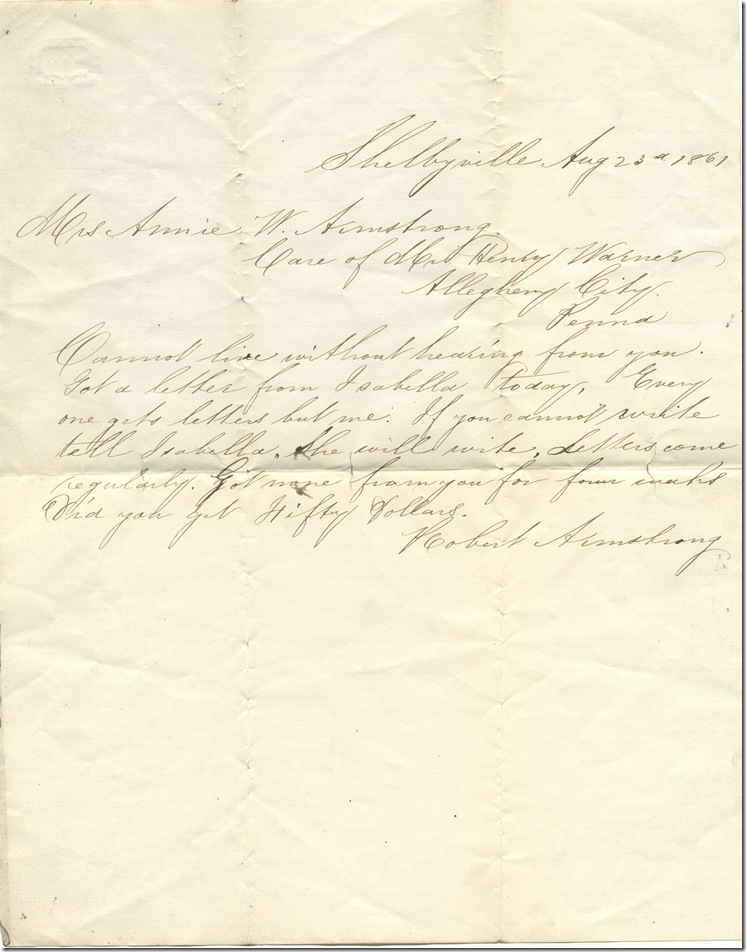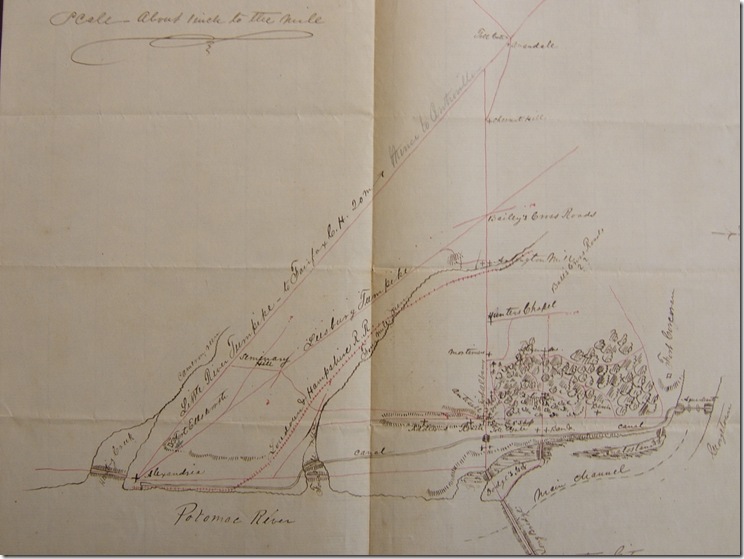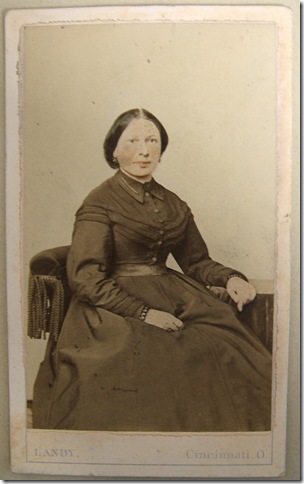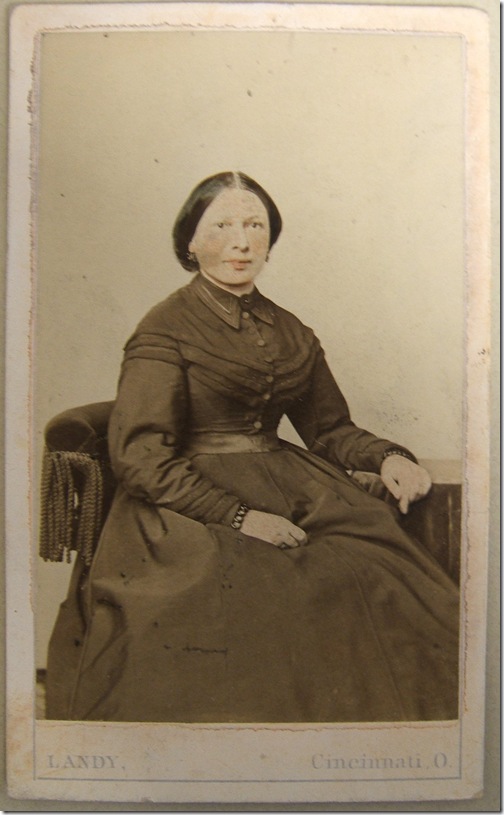Transcript:
Cape Girardeau, Mo.
August 31st 1861
Dear Father,
Your letter of the 26th is just received. As to the relative rank of officers (Brigadiers) you are right but in all the balance you are laboring under an erroneous impression. There has been no more made affecting me which has not been complementary rather than otherwise though calculated to keep me laboriously employed. I was sent to Ironton when the place was weak and threatened with a superior force and as soon as it was rendered secure was ordered to Jefferson City, another point threatened. I was left there but a week when orders were sent me ordering to this point putting me in command of all the forces in S.E. Mo. South Ill, and everything that can opperate here. All I fear is that too much is expected of me. My duties will absorb my entire attention and I shall try not disappoint the good people of Ill. who, I learn from every quarter, express an enthusiasm for me that was wholly unexpected. – [Gen.] Prentiss is not a particular favorite as you suspect nor is there a prejudice against him. I think all the Brigadiers are acceptable, with the rank assigned them by the President.
The Brigadiers are not all up north as you suspect. I know of but one, Hurlbut, who is there. Gen. McClernand is at Cairo, Prentis at [Scranton] and I presume Curtis will be with the command under me.
Gen. Hunter is at Chicago but I look upon that as temporary. I have not heard of any command being assigned him as yet and do not know that he has sufficiently recovered from wounds received in the late engagements in Virginia to [take] the field. Hunter will prove himself a fine officer.
The letters spoken of by you have not all been received. Those sent to [Galena] I got and answered. My promise to write to you every two weeks has been complied with and however busy I may be I shall continue it if it is but a line. I am now probably done shifting commands so often, this being the fourth in as many weeks.
Your suspicions as to my being neglected are entirely unfounded for I know it was the intention to give me a Brigade if I had not been promoted. Application would have been made to have me assigned, arbitrarily, as senior Colonel from Ill. for the purpose.
I want to hear from you as Mary often. I sent you the Daily Democrat thinking that would keep you better posted in this section – than I could do and being a cheap correspondent.
I wrote to you that I would like to have Mary go out to Galena and stay some time. I do not want Julia to leave Galena being anxious to retain my residence after the many kindnesses received from the people there.
I only arrived at this place last night and can not tell you much about things here. The people however are generally reported to be secessionists.
Ulys.
Citation: Ulysses S. Grant (1822-1885), autograph letter signed to Jesse Root Grant. Cape Girardeau, Mo., 31 August 1861. AMs 357/5
